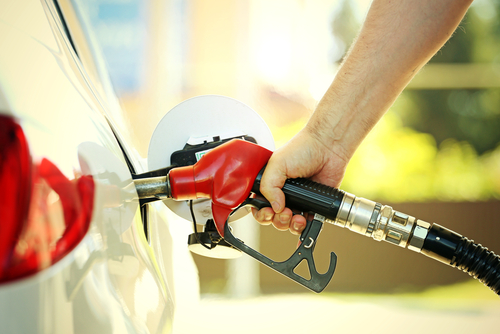Your Guide to Company Car Tax
A company car may be a common benefit for many UK firms, but with all the tax implications, is it really a perk or a business pain?
Every year nearly a million registered UK motorists are using company cars to get around for business purposes. From visiting clients to travelling to different office locations – a company car can be very resourceful. Yet, everything from fuel consumption and CO2 emissions to a car’s make and model can influence the amount of tax you might pay.
Company cars have long been a valuable business perk for employees. The HMRC, however, governs that all company cars used for incentives must pay tax.

What is Company Car Tax (BIK Tax) and How Is It Calculated?
A company car, which is often a business incentive, is subject to a type of tax called Benefit-In-Kind (BIK). According to the HMRC, who is responsible for collecting this tax, company cars are seen as an additional taxable benefit that falls outside of other regular tax contributions, such as National Insurance.
Under a business scheme, the full cash value of a company car is added onto your salary. A tax fee is then deductible from the final sum. Depending on your salary, rates could be influenced by tax thresholds.
There are two tax thresholds to be aware of, depending on your salary rate:
- Salaries above £10,600 are subject to basic 20% tax.
- Salaries over £42,385 pay a higher rate of 40% tax.
The list value of a company car, in addition to your wage, could affect your overall BIK tax.
Additional Factors That Can Influence Company Car Tax
Aside from tax thresholds, there are many other factors that might influence the total amount of BIK tax payable on a company car.
- the make and model of a car
- market value
- type of fuel
- how often the vehicle is used
- the vehicle’s CO2 emissions
Having trouble calculating this? The HMRC’s tax calculator can clarify the taxable amounts on employee company cars.
At the conclusion of each tax year, your employer should submit a P11D form which captures all your benefits and expenses. Company cars, here, are classified as taxable benefits and the market value of a car should be filed as a P11D value, along with calculating tax on fuel benefits.
Yet, company car tax is designed to encourage businesses to opt for cleaner vehicles by charging rates that take into account CO2 emissions.
Use the car’s official CO2 figure, which is represented as grams per kilometre (g/km). Within the current tax system, the P11D value is multiplied against the BIK rate (which describes the value of CO2 emissions as a percentage) and your income tax rate.

What Are the Best Cars for Tax Purposes?
The current tax system is generally more favourable to cleaner vehicles. It’s not uncommon, especially in recent years, for generous tax exemptions to attract greater market interest in electric mobility or cars offering lower emissions.
The lower the emissions, the greater the reduction in payable tax for company cars. Therefore, electric company cars can often seem likely the most cost-effective way for businesses to employ this kind of scheme.

Fuelling Your Company Car
It’s not uncommon for companies to cover fuel costs, too. However, both the company car and its fuel, if offered as a benefit, are separately taxed.
Need More Information or a Quote?
or call us on 0208 329 1150
Company Car Tax FAQs
• P11D value
• BIK rate (or CO2 emissions as a percentage)
• Your income tax
The payable tax is deductible for the sum of these factors.
To learn more about company cars and insurance, visit here.


